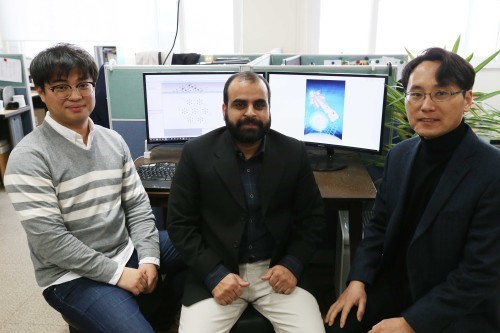Professor Kim Yong-Hoon’s research team (School of Electrical Engineering) succeeded in uncovering new properties of low-dimensional perovskite nanomaterials and presenting a new, non-linear device implementation method utilizing them.
The research team recently focused on low-dimensional weaponry halide perovskite material with characteristics that maximize both the manufacturing technology and quantum effects. Using supercomputers to strip away the organic matter of one-dimensional perovskite nanomaterial, it has been discovered that it can demonstrate never-before-reported quasi-metallic properties.
Also, it was discovered that if organic material is stripped off of the one-dimensional perovskite nanomaterial, supercomputers can be used to express quasi-metallic properties that have not been reported before. By using this one-dimensional inorganic frame as an electrode, it has been confirmed that it can implement excellent negative differential resistance (NDR) devices by creating tunneling devices based on a single perovskite nanomaterial. Inherent differential resistance refers to the phenomenon in which the current-voltage characteristic curvature appears non-linearly, as if it were ‘N’-shaped, as the voltage increases at a particular interval. It is a very important characteristic that will be the source technology for the development of next-generation devices.
The research team further revealed that this characteristic of NDR is based on a new principle of NDR stemming from quantum mechanical hybridization. Not only have the new structural and electrical characteristics of low-dimensional halide perovskite been identified, but they also have proved that the use of perovskite-based tunneling devices can lead to a significantly-improved property of the NDR devices.
This study, which was jointly-authored by Drs. Muhammed Khan and Lee Joo-Ho, will be published after being selected as the featured cover article of the international journal Advanced International Materials on January 7th, 2019.

(from the left) Lee Joo-Ho, Ph.D., post-doctoral researcher Mohammed Khan, Ph.D., and Professor Kim Yong-Hoon of KAIST